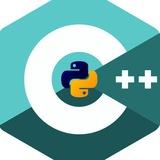This media is not supported in your browser
VIEW IN TELEGRAM
Look at Float32 vs Float64: O(1) difference => O(1) derivative error.
LINK
Shadowing Methods for Forward and Adjoint Sensitivity Analysis of Chaotic Systems
+julia codes
#julia
LINK
Shadowing Methods for Forward and Adjoint Sensitivity Analysis of Chaotic Systems
+julia codes
#julia
Online lecture series "Neural Data Science" on how to use #MachineLearning for #neuroscience is now complete
YouTube
GitHub
YouTube
GitHub
YouTube
Neural Data Science — Philipp Berens, 2021
Share your videos with friends, family, and the world
UVA DEEP LEARNING COURSE
MSc in Artificial Intelligence for the University of Amsterdam.
https://uvadlc.github.io/
GitHub
#course
#DL
MSc in Artificial Intelligence for the University of Amsterdam.
https://uvadlc.github.io/
GitHub
#course
#DL
GitHub
uvadlc_notebooks/docs/tutorial_notebooks at master · phlippe/uvadlc_notebooks
Repository of Jupyter notebook tutorials for teaching the Deep Learning Course at the University of Amsterdam (MSc AI), Fall 2023 - phlippe/uvadlc_notebooks
scikit-learn course
The goal of this course is to teach machine learning with scikit-learn to beginners, even without a strong technical background.
The course description can be found here.
GitHub
#course
#MachineLearning
The goal of this course is to teach machine learning with scikit-learn to beginners, even without a strong technical background.
The course description can be found here.
GitHub
#course
#MachineLearning
GitHub
GitHub - INRIA/scikit-learn-mooc: Machine learning in Python with scikit-learn MOOC
Machine learning in Python with scikit-learn MOOC. Contribute to INRIA/scikit-learn-mooc development by creating an account on GitHub.
Forwarded from the Turing Machine
Ten simple rules for structuring papers:
Overview
Good scientific writing is essential to career development and to the progress of science. A well-structured manuscript allows readers and reviewers to get excited about the subject matter, to understand and verify the paper’s contributions, and to integrate these contributions into a broader context. However, many scientists struggle with producing high-quality manuscripts and are typically untrained in paper writing. Focusing on how readers consume information, we present a set of ten simple rules to help you communicate the main idea of your paper. These rules are designed to make your paper more influential and the process of writing more efficient and pleasurable.
[ link ]
Follow: @theTuringMachine
Overview
Good scientific writing is essential to career development and to the progress of science. A well-structured manuscript allows readers and reviewers to get excited about the subject matter, to understand and verify the paper’s contributions, and to integrate these contributions into a broader context. However, many scientists struggle with producing high-quality manuscripts and are typically untrained in paper writing. Focusing on how readers consume information, we present a set of ten simple rules to help you communicate the main idea of your paper. These rules are designed to make your paper more influential and the process of writing more efficient and pleasurable.
[ link ]
Follow: @theTuringMachine
Great YouTube channel for data science.
https://youtu.be/TeEj3eTXdiY
https://youtu.be/TeEj3eTXdiY
YouTube
ritvikmath : data science for all
Dive into Deep Learning
Interactive deep learning book with code, math, and discussions
Implemented with NumPy/MXNet, PyTorch, and TensorFlow
https://d2l.ai/index.html
Interactive deep learning book with code, math, and discussions
Implemented with NumPy/MXNet, PyTorch, and TensorFlow
https://d2l.ai/index.html
🎉 release swyft 0.2.0, a practical machine learning tool for robust simulation-based inference in physics.
Python package: GitHub
🪄 Simulation-based inference can do magic. How can swyft help?
Read the thread.
Python package: GitHub
🪄 Simulation-based inference can do magic. How can swyft help?
Read the thread.
GitHub
GitHub - undark-lab/swyft: A system for scientific simulation-based inference at scale.
A system for scientific simulation-based inference at scale. - undark-lab/swyft
🍀 Suggest name of a Python package for the
"Simulation of complex network dynamics with differential equations"
using just in time compilation (jitc).
It use phase and population models for simulation of interaction nodes.
netsim and pysim already taken.
"Simulation of complex network dynamics with differential equations"
using just in time compilation (jitc).
It use phase and population models for simulation of interaction nodes.
netsim and pysim already taken.
Forwarded from the Turing Machine
Deep Learning, which is a course on the theory and techniques of deep learning with an emphasis on neuroscience. The course runs from August 2-20.
The syllabus for this course is still in progress, here is the current draft.
[ link ]
Follow: @theTuringMachine
The syllabus for this course is still in progress, here is the current draft.
[ link ]
Follow: @theTuringMachine
Machine learning, computer vision, statistics and general scientific computing for .NET
https://github.com/accord-net/framework
#ML
https://github.com/accord-net/framework
#ML
GitHub
GitHub - accord-net/framework: Machine learning, computer vision, statistics and general scientific computing for .NET
Machine learning, computer vision, statistics and general scientific computing for .NET - accord-net/framework
